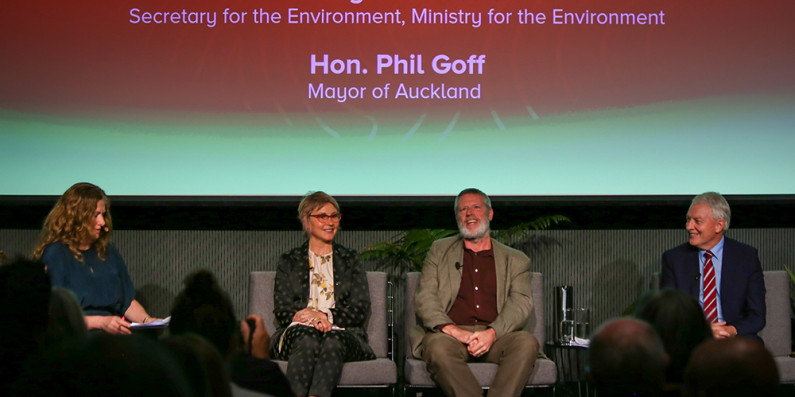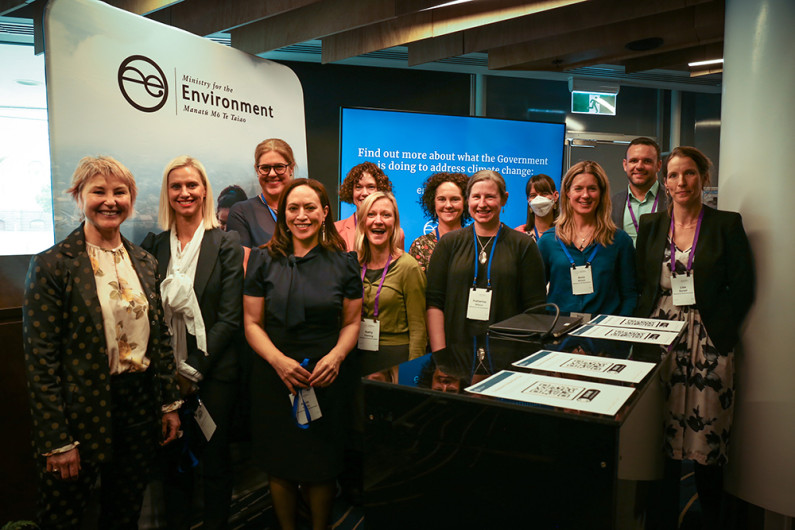Adrian Orr, Governor for the Reserve Bank of New Zealand noted that capital is flowing away from investments that are not sustainable toward those that are.
“There is money to be made at the forefront of adaptation. The next three-to-five years will see a wealth of climate-related information increasing transparency come to the fore,” said Orr.
Caroline Lambert of the European Union (EU) detailed how the EU is putting trade at the centre of climate policy, with EU financial institutions seeking out suppliers that have a lighter impact on the environment. She emphasised that Māori businesses set the gold standard internationally, particularly by emphasising the distinct and intimate connection between the people and the land.
Speaking on voluntary carbon markets and off-setting at CCBC, Belinda Van Eyndhoven, Head of Sustainability at Westpac had this advice for companies:
“There is a way companies can credibly offset. Businesses can set a gross emissions target that is science aligned and reduce their own emissions as far as possible. Then, be very clear about the process you have taken to offset.”
She continued, “Make sure the offsets are of a high integrity and use the principles in the Ministry for the Environment guidance to help you determine high quality offsets. Be careful what you claim and be very transparent.”
Vicky Robertson, secretary for the environment, discussed the new Climate Change Chief Executive Board that will provide oversight of the Government’s response to climate change.
“The creation of the Climate Change Chief Executives Board is a new way of working, one that cuts through government silos, and also will work with Māori, communities and businesses”, said Vicky Robertson. “The Board will have an ongoing adaptive management approach to the climate crisis. This is a different way of working, and one that will allow us to take advantage of innovations and technologies, and to adapt as new information and data becomes available.”
The youth panel on climate solutions spoke on the importance of having rangatahi in involved in policy and projects, as representatives of the long-term impacts of policy design.
Agricultural businesses discussed how to reduce climate pollution (gross emissions) by switching from fossil fuels to biomass and electricity, and by making their systems and programmes of work more efficient.
“We need to decarbonise now while allowing flexibility within our plans to adopt new technology” says Linda Mulvihill, head of Energy and Climate at Fonterra.
The Ministry for the Environment (MfE), in partnership with the Environmental Defence Society, Sustainable Business Council and Climate Leaders Coalition, sponsored this year’s Climate Change and Business Conference.

